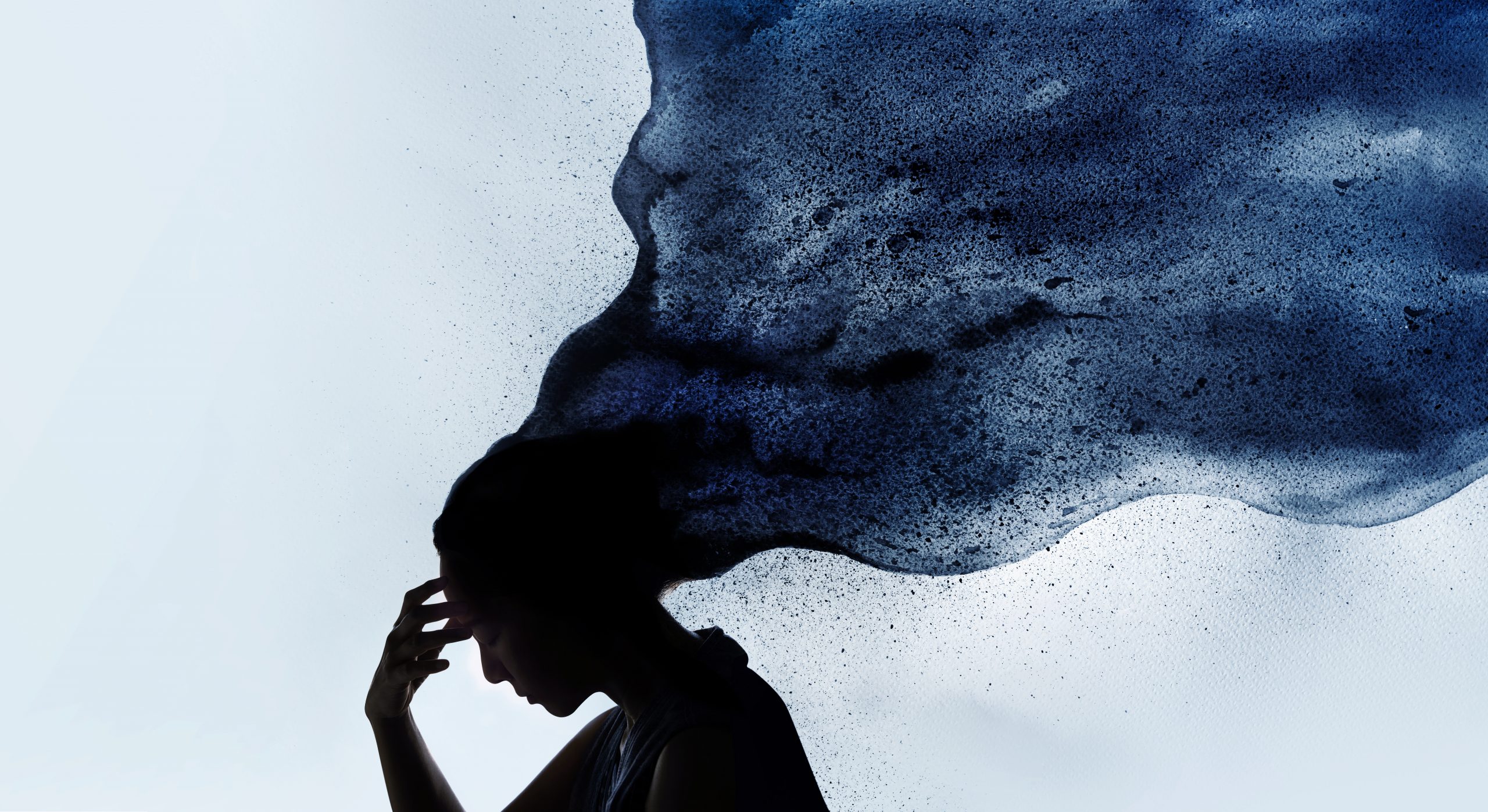Depression is a common mood disorder characterised by a range of symptoms that indicate a clinical illness. As with many other mental health problems, the causes and symptoms of depression vary from person to person. This makes depression a complicated illness to understand and treat as there is no ‘one-size-fits-all’ approach. As such, the length of time that depression lasts will fluctuate depending on a vast array of factors.
The good news is that depression is a treatable condition, and it is entirely possible to feel happy, healthy, and in control of your mental health. The treatment options available will help you find the right recovery method for you, enabling you to begin to improve your mental well-being.
If you have been feeling depressed for a long time, please remember that this feeling will not last forever. This blog discusses the different types of depression, its symptoms, and how long depression usually lasts.
What Is Depression?
Many people feel down from time to time as a response to life’s struggles and problems. This is not depression. Depression is a serious mental health disorder that affects people from all walks of life. Nevertheless, it is a treatable condition, and many people who seek treatment go on to live happy lives.
Depression invades all aspects of an individual’s life. For example, it can impact a person’s professional and personal life, not to mention their relationships. Depression can also make daily life and activities that used to feel effortless feel like huge or even impossible tasks. Left untreated, depression can also develop into suicidal thoughts, which are extremely dangerous.
Some things to remember so that you don’t feel shame or stigmatised for having depression include:
- Depression isn’t your fault, and it can happen to anyone
- Depression is not something to feel shame about
- Depression is not just something you can snap out of as it is a severe medical condition
- You should treat your mental health the same way you would treat your physical health
- Depression is not a sign of weakness – acknowledging it is, in fact, a sign of strength
- Depression won’t last forever, and there is always help available
- Seeking help for depression will be one of the most rewarding things you ever do
Types of Depressive Disorders
Depression can be divided into different types of disorders. Some of the most common forms of depressive disorders include:
- Major depressive disorder or severe depression
- Mild or moderate depressive disorder
- Seasonal affective disorder (SAD)
- Persistent depressive disorder
- Postpartum depression
- Postnatal depression
- Bipolar disorder
Many types of anxiety disorders can also lead to symptoms of depression, and it is possible to have multiple mental health conditions at a time.
What Are the Symptoms of Depression?
Depression has many different symptoms, but it is generally defined by a persistent feeling of sadness, hopelessness, and disinterest in pleasurable activities. In addition, an individual will experience a combination of the following symptoms:
- Feeling empty
- Having low self-esteem
- Feeling guilty
- Having a low mood
- Lack of focus and concentration
- Sleep issues
- Weight and appetite changes
- Headaches
- Feeling pessimistic
- Low sex drive
- Cramps
- Aches
- Pains
- Feeling suicidal
These symptoms usually have to have been present for at least two weeks to receive a diagnosis.
If you feel suicidal, please know that you are not alone, no matter how lonely you may feel now. As hard as it may be to accept, many people have felt the same way you do now. However, they have managed to survive and thrive. And you can too.
Even if you doubt yourself, we don’t doubt each person’s immense ability to feel better and change their thinking. There is help available, and there is a way out.
Why Do People Get Depressed?
Unfortunately, there is no simple, singular answer to the question of why people get depressed. Instead, many different things might trigger depression. Some causal factors for depression include:
- Traumatic events
- Loneliness or social isolation
- Family history
- Stressful life events
- Personality
- Childbirth
- Illness
- Drug or alcohol abuse
- Brain chemistry
How Long Does Depression Last?
There is no ‘one-size-fits-all’ answer for how long depression lasts; it depends on various factors.
A depressive episode is a period (classed as at least two weeks minimum) in which depression symptoms flare up, just as physical symptoms do in chronic physical conditions. But how long does depression last, and how many times will a person experience a depressive episode?
A depressive episode can vary from person to person; however, they typically last a few weeks to years. Some people will only experience one episode, but it is more common for those with depression to have multiple episodes throughout their lives. As recurrent depression keeps coming back, it is vital to seek mental health treatment as soon as possible to prevent it from developing.
There are different reasons why symptoms of depression may recur throughout a person’s life. Some of the factors at play include:
- The symptoms experienced
- The type of depression
- Having another mental health disorder alongside depression
- Personality type
- Family history of depression
- Unhealthy thought patterns
- Stressful events
- Traumatic events
- A lack of a support network
If you are experiencing a depressive episode, remember that treatment is effective, and your mental health disorder can be improved. You do not have to live with this illness – treatment can help you change your life for the better.
Treatment Options to Improve Mental Health
Depression treatments work differently for everybody. Do not be disheartened if something is not working for you that does work for someone else, as each person is different and, therefore, will respond varyingly to different treatment options.
Early treatment of depression will help you from developing more serious symptoms. Left untreated, mild depression can develop into major depression and even suicidal thoughts. With proper treatment, many people will begin to heal and recover from this illness successfully. Some of the most effective treatments for depression include the following:
Medication
Medication is an effective form of treatment for many people. Antidepressant drugs help to rebalance the chemicals in your brain that may be out of balance as a result of your mental health disorder.
There are many different types of medication, and what is successful for one person in treatment will not necessarily work the same for someone else. It is therefore important not to be disheartened if one type of medication does not work! This doesn’t mean that you will not be able to recover, you may just need to work with your doctor to adjust your treatment plan and try out some other options. Make sure to let your doctor know about any herbal remedies you may be taking as they may have an effect on the antidepressant medication.
Talk Therapy
Talk therapy, such as cognitive behavioural therapy (CBT) or group therapy, helps to build self-esteem and supports you to figure out ways of changing your unhelpful thinking patterns into healthy ones. These sessions will be led by a mental health professional and can help to reduce symptoms by talking through your thoughts and feelings and being guided through helpful, practical ways to change these.
Lifestyle Changes
Lifestyle changes, can all really help you to feel better and improve your mental health. Changes such as sticking to a treatment plan, getting connected with support groups, healthy eating, regular sleep patterns, and getting regular exercise will all help to improve symptoms of depression and boost your self-esteem. A meditation and yoga practice can also help in aiding mood disorders.
Conclusion
Asking how long depression lasts is almost like asking how long is a piece of string. Depression will last a different length of time for each person, with some people experiencing it for a much shorter time than others. The important thing to remember is that the feelings will not last forever and that it is a treatable illness. No matter how bad you are feeling, keep in mind that there is hope.
If you are worried that you may be suffering from depression, contact The Revoke Programme today. Our specialist team are always happy to help and truly understand what you are going through. Our outpatient treatment options allow you to continue your busy schedule whilst still working on improving your mental health, so having no time should not be a problem. Make sure to prioritize your well-being, and get in touch today to feel renewed.



